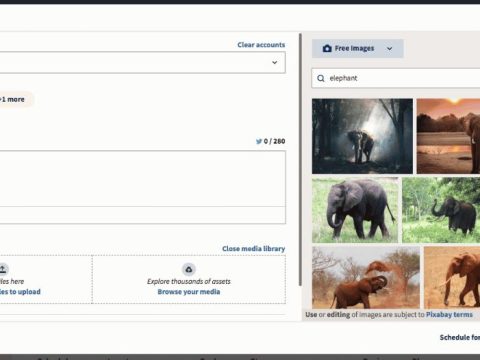Social media has become an integral part of our lives. We share photos, videos, thoughts, and conversations on platforms like Facebook, Twitter, Instagram, and TikTok. With billions of users worldwide generating massive amounts of content daily, an important question arises – who owns all this content?
What constitutes public domain?
For content to be considered public domain, it must not be protected by copyright or its copyright term has expired. Copyright law automatically protects creative works like books, songs, films, and artwork as soon as they are fixed in a tangible medium. The standard copyright term in the US is life of the author plus 70 years.
Works in the public domain can be used freely without permission or payment. They include:
- Works with expired copyright term
- US government works
- Facts and ideas
- Works that lack originality or creativity
However, public domain is different from fair use provisions that allow limited use of copyrighted works for purposes like education, commentary, etc. Also, trademarks and patents are separate from copyright and must be respected even for public domain works.
Who owns the copyright to social media posts?
On most social networks like Facebook, Twitter, Instagram and TikTok, users retain copyright on the content they post, unless it is transferred to the platform via Terms of Service. So technically, social media posts are not public domain just because they are published online.
Here’s how some popular platforms address copyright ownership:
| Platform | Copyright Terms |
|---|---|
You own all of the content and information you post on Facebook, and you can control how it is shared through your privacy and application settings. In addition:
|
|
| You retain your rights to any Content you submit, post or display on or through the Services. What’s yours is yours — you own your Content. | |
We do not claim ownership of your content, but you grant us a license to use it.
|
|
| TikTok | You own your content. We do not claim ownership over your content, but we do need your permission to use it.
|
So while you retain copyright ownership, platforms get usage license to display, distribute and promote your content as part of their service. The extent of this license depends on the platform’s Terms of Service.
When does social media content enter public domain?
Social media posts are subject to standard copyright term limits just like any other creative work:
- For posts since 1978, copyright lasts for lifetime of author plus 70 years.
- For anonymous posts, copyright lasts for 95 years from date of publication or 120 years from date of creation, whichever expires first.
So a social media post will enter public domain only after the copyright term has expired, which takes decades. For example, a Facebook post created today by someone who passes away in 2050 will enter public domain in 2120 (70 years after death).
The only exceptions are posts by US federal government agencies, which are not eligible for copyright protection and directly enter public domain.
Can you reuse social media content?
While social media posts are copyrighted, there are some limited provisions that may allow reusing them in certain contexts like reporting, education and parody:
- Fair Use – Quoting small portions of a post for purposes like commentary, criticism, news reporting, etc. may qualify as fair use.
- Creative Commons – Some users explicitly license their content under Creative Commons to allow reuse with conditions like attribution.
- Implied license – Platforms likely have an implied license to display and reproduce content as required by their service.
- Parody – Creating a parody version of a post specifically for humor or commentary may be allowed under parody protections.
However, taking entire posts or using them outside these limits still requires permission from the copyright holder. Best practice is to avoid reusing social media content without explicit authorization.
Using social media posts commercially
Usage of social media posts for commercial purposes like advertising or merchandise is very restrictive. Some key considerations:
- Obtain license or permission from the copyright holder before using any posts commercially.
- Review platforms’ Terms of Service for any restrictions on commercial use.
- Remove all identifiable user information like usernames and profile pictures.
- Give appropriate credit and respect context – don’t imply endorsements without consent.
Specialized licensing services like RightsTrade and PicScout provide licensed social media content approved for commercial use. But in general, the safest option is getting direct consent from the content creator.
Best practices for reusing social media content
When reusing social media content in your own work, keep these best practices in mind:
- Cite authorship – Always credit the original creator and platform.
- Follow fair use guidelines – Use only small portions of a post and ensure it qualifies as commentary, criticism, etc.
- Check Terms of Service – Review if the platform has any specific restrictions or requirements.
- Obtain permission – When in doubt, ask the author for permission.
- Remove identity details – Anonymize posts by removing user handles, profile pictures, etc.
With the explosion of social media, the lines of copyright ownership have blurred. But social platforms have generally maintained that users retain rights to their own content. So reusing posts without permission not only violates copyright law but also the creative rights of the original author.
Conclusion
Social media content is not public domain just by virtue of being published online. Users own the copyright to their posts and consent is required for reuse, with limited exceptions. Fair use provisions may allow brief excerpts for commentary and news reporting. But commercial usage requires explicit licenses or permission. Social platforms grant a usage license for displaying and promoting content as part of their services. But after standard copyright terms expire decades later, social media posts finally enter public domain like any other creative work.


